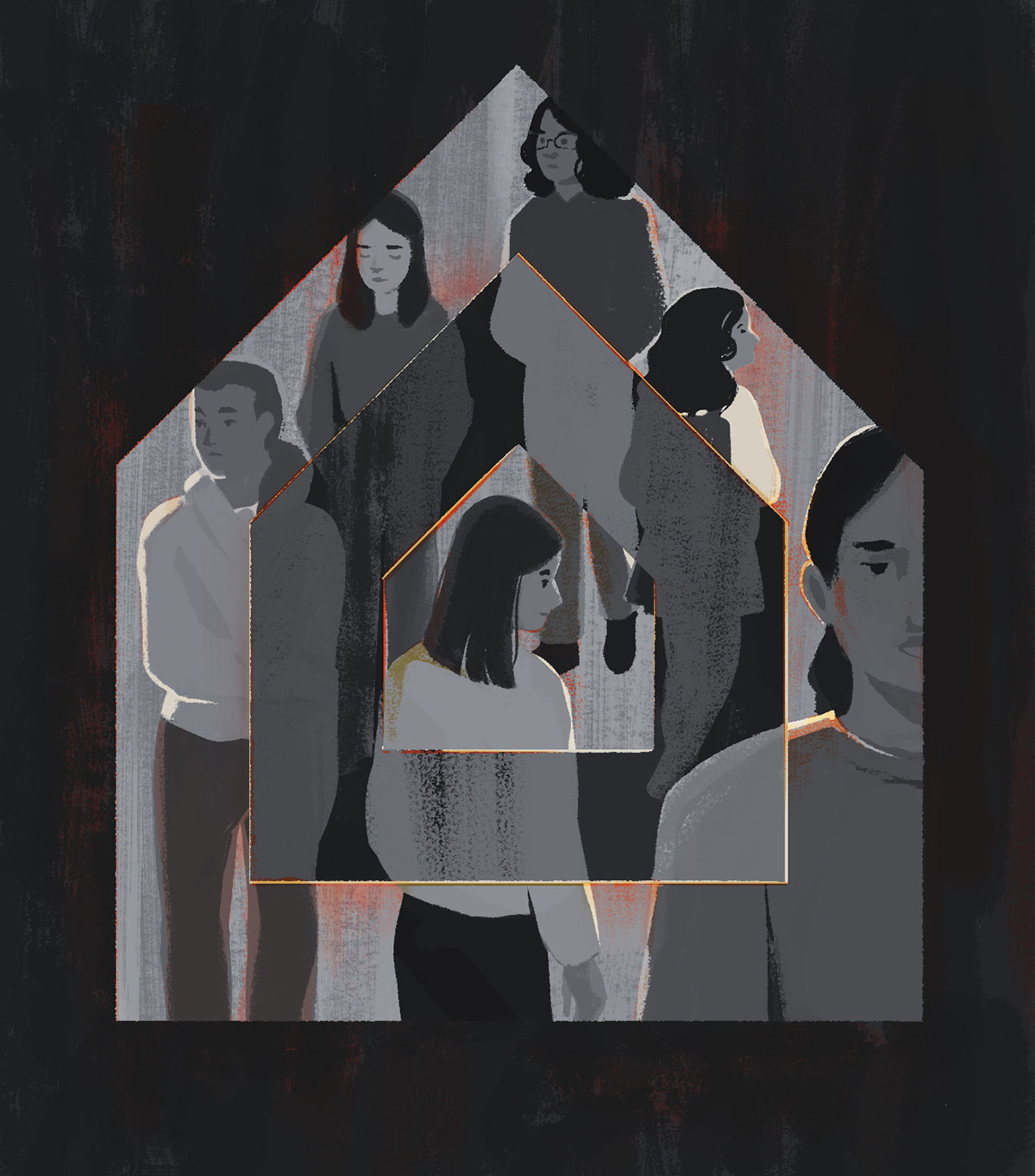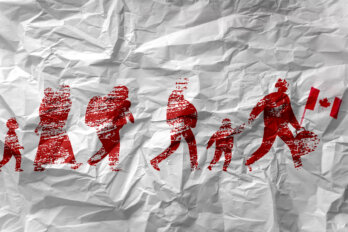The Meeting House, formerly one of Canada’s most prominent evangelical megachurches, may now only be able to offer its popular Sunday ministry online instead of in person. In June, in the wake of numerous sexual abuse and misconduct allegations against church leadership and facing several multi-million-dollar civil suits, the church announced that it had been denied abuse insurance coverage and was therefore deciding to “pause” its in-person services, including Sunday worship. Without this insurance, the church has been forced to restructure how it offers ministry—and raises questions about the church’s future.
When asked whether or not the church has since received abuse liability insurance, Matt Miles, interim senior director at the Meeting House, declined to confirm. But on Sunday, August 4, after a month of posting pre-recorded sermons online instead of offering in-person services, the Meeting House returned with a livestreamed sermon delivered via its YouTube channel. In the sermon, teaching pastor Jimmy Rushton hinted at the church’s new direction: “While July was a time of pause . . . this is the ‘press play’ day. . . . We want to steward an online, engaged presence with and for you.” While Miles didn’t deny that the Meeting House, for the time being, will be moving forward exclusively online, he noted in an email to The Walrus that “the church isn’t the institution, it’s the people gathered with a purpose” and that “churches have been engaging in a range of gatherings and activities this summer, and are preparing for a hopeful new chapter in September.”
The moment comes as the Meeting House, which once peaked at more than 5,000 members, nineteen satellite sites, and around 200 “home churches” across Ontario, has been reckoning with accusations that it failed to protect its parishioners, including children, from abuse by church leadership over many years. The ministry became embroiled in scandal in 2021 after a wave of sexual assault and misconduct accusations emerged against former lead teaching pastor Bruxy Cavey, resulting in his resignation from the church in early 2022. That year, Cavey was charged with one count of sexual assault against one woman, and the following year, he was charged with two additional counts of sexual assault involving a separate person. Cavey’s first sexual assault charge was dismissed by a Hamilton judge in July due to delays at court. Proceedings for the two outstanding sexual assault charges are ongoing.
The Meeting House was founded in Oakville in 1986 and experienced exponential growth under the leadership of Cavey, a former street evangelist who became lead teaching pastor in 1997. In 2002, the church moved into a former Cineplex movie theatre, where it recorded sermons and livestreamed them across Canada and beyond, eventually relocating into a 37,500-square-foot converted warehouse. The church marketed itself as an alternative to more mainstream faiths and drew a younger crowd of people who had been disenchanted by Christianity or had outright rejected it. “This church was animated by the charisma of Cavey and a joint production that included a team of leaders and a vast crowd of followers who believed in the irreligious message of Jesus. That vision, that charisma is gone,” Peter Schuurman, a Christian academic who published a book about Cavey and the church, told The Walrus in 2023.
The church has struggled to retain members since the allegations against Cavey and other church leaders emerged, and at least one location, in London, Ontario, has closed. In June, the church announced it was pausing face-to-face ministry for the month of July, including in-person services, children’s programming, and pastoral counselling, as the church’s unnamed insurer had in April declined to renew its “Abuse Liability” and “Employment Practices Liability” coverage. The church’s “longstanding [insurance] broker” also informed it that it would no longer be offering services, including “to source alternate solutions.” While the church says it was able to successfully renew other types of coverage, such as property insurance, when it approached “a number of [other] insurers” to try to secure “Abuse Liability” and “Employment Practices Liability” coverage, many or all declined.
“After an exhaustive search, most other insurers have declined to offer us this coverage,” the church wrote in an email to members. “In light of this development, we feel led to pause our normal ministry for the month of July to dedicate time to continue discerning what form God is inviting us to take into the future as a network of churches, in partnership with our local leadership teams.” Through June and July, the church continued posting content online and noted it could still accept charitable donations and rent out the church’s main warehouse to third parties. “Any choice to meet up with friends or others you know from church to worship, engage with ministry materials . . . is your choice,” the church noted.
The church’s insurance woes came as it grappled with ongoing multi-million-dollar civil lawsuits filed by women who attended as children. In an exclusive, The Walrus reported in March that three women had filed separate civil lawsuits against the church, alleging abuse, when they were minors, by two former youth pastors. Each of the three statements of claim in the civil cases—none of which pertain to Cavey—alleges that the church “created the risk of sexual assault that led to and allowed” church leaders “to sexually assault” the complainants. The church, the women claim, failed in its duty to “properly supervise its employees” and failed to “instruct its employees . . . about the possibilities of becoming sexually deviant and/or making advances to members and/or other young people.” Both the former youth pastors, Kieran Naidoo and Dave Churchill, ended up pleading guilty to crimes related to the sexual abuse of girls and served jail time.
In January of this year, a Hamilton court ruled in favour of a motion by the church to dismiss one of the civil cases. The woman’s lawyer, Matthew Lefave, would not confirm or deny whether any sort of settlement had been reached. “All I would say is it’s very commonplace, that after matters resolve, that one of the parties will take out an order dismissing the action,” Lefave previously told The Walrus. “Beyond that, I can’t speak to any details as to the resolution.” In its statement of defence in that case, the Meeting House denied it had breached its duty of care and said that it had abuse prevention policies in place. The other two civil cases are still pending.
Abuse insurance policies protect staff in all types of sectors and organizations, including churches, and can include legal defence costs required to respond to abuse and misconduct allegations and to settle legal disputes. Melodie Bissell, a former victim advocate at the Meeting House and current president and CEO of Plan to Protect, an organization that provides abuse prevention services to churches and other organizations (including the Meeting House) that work with vulnerable-sector populations, notes that it’s common for insurers to exclude abuse coverage from insurance plans. “Many churches, charities and organizations may be operating without abuse coverage and they do not know it,” Bissell wrote in an email after the Meeting House paused its services. “When there has been claims of abuse, insurance companies exercise their right to remove coverage. . . . If you lose coverage due to claims or historical abuse, it is a risk that many insurance companies will not want to take on.”
Many former members of the Meeting House have quietly watched the decline of the church. Mary (a pseudonym) previously detailed to The Walrus how, in 2009, she had been sexually harassed by Tim Day, a senior pastor at the church at the time. (Day, who resigned from the church in 2015, has previously declined to comment on these allegations.) Mary left the church in 2011 after, she says, she raised concerns with Cavey. “It was truly a culture where, if you were a perpetrator, if you’d messed up big time, there was protection and cover,” Mary previously told The Walrus. “If you dared to call out the culture of sin and cover-up and all this crap, you were the one who was at risk. You were in the crosshairs.”
Today, Mary continues to feel disheartened by the church’s response to wrongdoing and abuse. “They dug their own grave. This could have gone so differently,” Mary says, in response to the church’s pausing of services. “Apparently God speaks through insurance adjusters when religious institutions refuse to hear from, and protect, their own people.”




